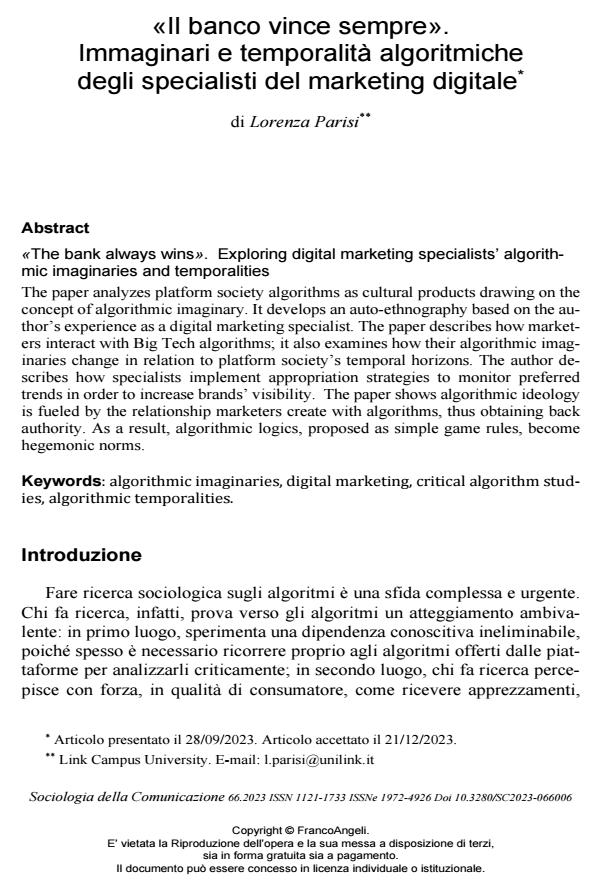«The bank always wins». Exploring digital marketing specialists’ algorithmic imaginaries and temporalities
Journal title SOCIOLOGIA DELLA COMUNICAZIONE
Author/s Lorenza Parisi
Publishing Year 2024 Issue 2023/66
Language Italian Pages 17 P. 95-111 File size 277 KB
DOI 10.3280/SC2023-066006
DOI is like a bar code for intellectual property: to have more infomation
click here
Below, you can see the article first page
If you want to buy this article in PDF format, you can do it, following the instructions to buy download credits

FrancoAngeli is member of Publishers International Linking Association, Inc (PILA), a not-for-profit association which run the CrossRef service enabling links to and from online scholarly content.
The paper analyzes platform society algorithms as cultural products drawing on the concept of algorithmic imaginary. It develops an auto-ethnography based on the author’s experience as a digital marketing specialist. The paper describes how marketers interact with Big Tech algorithms; it also examines how their algorithmic imaginaries change in relation to platform society’s temporal horizons. The author describes how specialists implement appropriation strategies to monitor preferred trends in order to increase brands’ visibility. The paper shows algorithmic ideology is fueled by the relationship marketers create with algorithms, thus obtaining back authority. As a result, algorithmic logics, proposed as simple game rules, become hegemonic norms.
Keywords: algorithmic imaginaries, digital marketing, critical algorithm studies, algorithmic temporalities
Lorenza Parisi, «Il banco vince sempre». Immaginari e temporalità algoritmiche degli specialisti del marketing digitale in "SOCIOLOGIA DELLA COMUNICAZIONE " 66/2023, pp 95-111, DOI: 10.3280/SC2023-066006